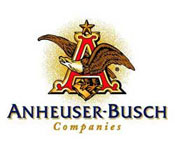
Het waar, A-B?
The proposed merger is interesting on so many fronts. Will Budweiser, the quintessential American beer, now be owned by foreigners? Will InBev succeed in becoming the world’s largest brewer (and fourth-largest worldwide consumer products company)? Will InBev, brewer of Stella Artois and Becks, keep the Budweiser recipe intact as they have claimed, or would they dare tinker with such an American icon?
I really don’t know what this means for the beer industry or the craft beer market. A-B is the largest brewer in the U.S. and enjoys a 48% market share. That’s a lot of beer drinkers, and I’m willing to bet a lot of them won’t exactly be happy about a foreign company brewing their Bud. At the same time, SABMiller and Molson Coors are joining forces to consolidate their U.S. and Puerto Rico operations into a new company called MillerCoors. MillerCoors is expected to better weather the industry storm with a combined 30% market share. Have the craft breweries really brought down big beer?
Craft beer has been enjoying explosive growth for some time now. I have been pleasantly surprised at the selection of interesting beers where there used to be only Budweiser and Coors: a hefeweizen at Penn Station? A blonde ale served at Yankee Stadium?? However, big beer still reigns supreme across the land – sometimes in ways which aren’t immediately apparent. After all, you can find Blue Moon on tap in just about every barroom in my neck of the woods, and that happens to be a Coors offering.
That’s right, big beer has been quietly brewing up their own versions of “craft beers”, as well as buying up stakes in craft breweries. A-B itself owns minority stakes in Widmer Brothers and Redhook Ale Brewery. In addition, Michelob, another A-B brand, has been actually winning medals at the GABF and World Beer Cup…I don’t think anyone can argue that an unleashed A-B brewer is a powerful force, and Michelob’s bold offerings – an “Amberbock”, honey lager, and a Märzen, are supposedly closer to craft quality than the yellow fizzy stuff we’re accustomed to (disclaimer: I have not tried any of those beers, but I’m going to try and find them to do a review in the near future).
No matter what happens, it’s obvious the beer industry is in a period of upheaval. Some of the old standards are being tested, and it will be interesting to see if the big breweries lose market share, and if so, where it goes. I think it is important to support your local breweries and brewpubs now, since if the big boys are going through trying times, the smaller guys might be feeling the pinch soon, too.
So, let me know what you think of these developments. Even if you hate A-B and big beer’s beverages, they have made huge contributions to the beer world in general – for example, big beer is largely responsible for the cold-storage distribution chains across the country which help keep our favorite brews in prime condition by the time our locals get them. I just hope this winds up being a good thing, overall, for the beer community. And InBev had better not get rid of those Clydesdales, or Stella will never again touch these lips.